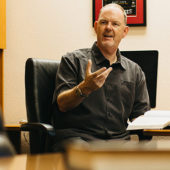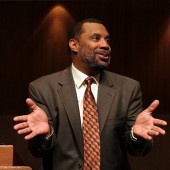You may not know Barronelle Stutzman’s name, but her story has the potential to impact all Americans, especially people of faith.
Barronelle Stutzman is a grandmother, a florist, and a committed Christian. She’s enjoyed serving her community in Washington State through her small business, Arlene’s Flowers.
For the past several years, she’s been embroiled in legal battles that may cost her everything she has– because she declined to provide flowers for a same-sex wedding ceremony. Barronelle’s case has reached Washington state’s supreme court.
The Alliance Defending Freedom is a legal organization representing Barronelle and many other similar cases. In their summary, they point out that the state’s charge of discrimination is contradicted by her long-standing service to the same customer who is now suing her:
“Barronelle Stutzman, the sole owner of Arlene’s Flowers in Richland, Wash., has for her entire career served and employed people who identify as homosexual. Despite this, the American Civil Liberties Union and the Washington attorney general allege that she is guilty of unlawful discrimination because she acted consistently with her faith and declined to use her creative skills to beautify the same-sex ceremony of a long-time customer, Robert Ingersoll, and another man, Curt Freed.”
Kristen Waggoner, senior counsel for Alliance Defending Freedom, says this case is all about the First Amendment:
“We as a nation have said that the government cannot force someone to speak, and they cannot force them to be quiet. That it cannot interfere with expression. We have also said that the First Amendment, as a part of that, protects artistic expression. That includes different mediums, things that are not included in spoken or written words, but even abstract art or atonal music–things that those of us who aren’t quite so “artsy” don’t understand what the purpose even is of the artistic expression– (but) that’s still protected.”
“Barronelle’s creations for a wedding design are artistic expression. They’re created out of nothing; they use the same components abstract art uses. And the government is trying to force her to use her creative talents and her artistic soul to create something that violates the core of who she is. That violates the compelled speech doctrine.”
She says the state’s case against Barronelle relies on very broad assertions of government control over individual free speech:
“The (Washington State) attorney general argued that you can have your faith to believe, but you do not faith to act…that the government can stop you from acting. Obviously that’s true in the sense that you can’t hurt someone. But he was saying there’s really no limit to what the government can stop you from doing, if even if it’s a part of your religious conviction.
If that philosophy were adopted, she says there could be drastic consequences, not just for Christians, but for everyone.
“Under the government’s interpretation here, this law could force a Democratic speechwriter to write speeches for Donald Trump. It could force someone that does voice-over commercials to have to do something that violates his convictions. It could force a Muslim web designer to have to promote a Jewish Friends of Israel group. It could force an African-American man to have to promote the K.K.K. and create graphic design (for them). It just turns the law, our protection for free expression, on its head.”
Kristen Waggoner serves as senior counsel and senior vice president of U.S. legal advocacy with Alliance Defending Freedom. She supervises a team of more than 50 attorneys and legal staff who specialize in constitutional law and focus on religious freedom, sanctity of life, and marriage and family.
Faith and Freedom of Speech with Kristin Waggoner





















